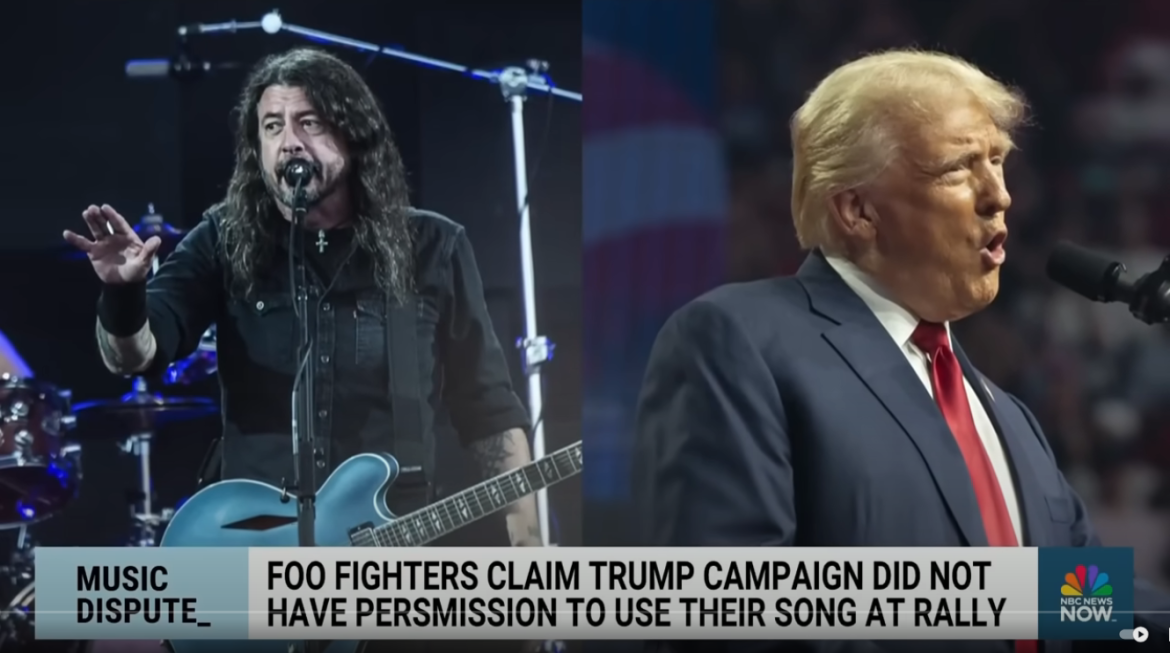The Foo Fighters and the Trump campaign are embroiled in a dispute over the unauthorized use of the band’s hit song “My Hero” at a rally held last Friday in Glendale, Arizona. The conflict arose after the song was played during former President Donald Trump’s rally, prompting fans to question whether the band had given their approval.
In response to a fan’s inquiry on social media platform X (formerly Twitter) about whether the Foo Fighters had authorized the use of the song, the band swiftly responded with a clear “No.” The Foo Fighters further stated that any royalties generated from the song’s use at the rally would be donated to the Harris/Walz campaign, in a move that underscores their disapproval of the song’s association with Trump’s event.
In contrast, a spokesperson for the Trump campaign told The Hill that the campaign possesses a license to play the song at public events. This statement highlights a broader legal and ethical debate over the use of copyrighted music in political settings, particularly when the artists themselves object.
The Foo Fighters have announced that they will donate all royalties from the use of their song “My Hero” to Vice President Kamala Harris’ campaign after the track was played at a Donald Trump rally without the band’s approval. The band made it clear that they did not authorize the song’s use and, in a statement, emphasized their disapproval by directing the royalties to Harris as well as Minnesota Governor Tim Walz. This gesture not only underscores the band’s stance against the unauthorized use of their music but also signals their political alignment and support for the current administration.
This is not the first time Trump has faced backlash from musicians over the use of their songs at his events. Over the years, artists including Celine Dion, Beyoncé, the Rolling Stones, and the estate of Isaac Hayes have all pushed back against the unauthorized use of their music at Trump rallies.
The ongoing dispute between the Foo Fighters and the Trump campaign is a reminder of the tensions that often arise between artists and political figures, especially when it comes to the public use of creative works without explicit consent.



